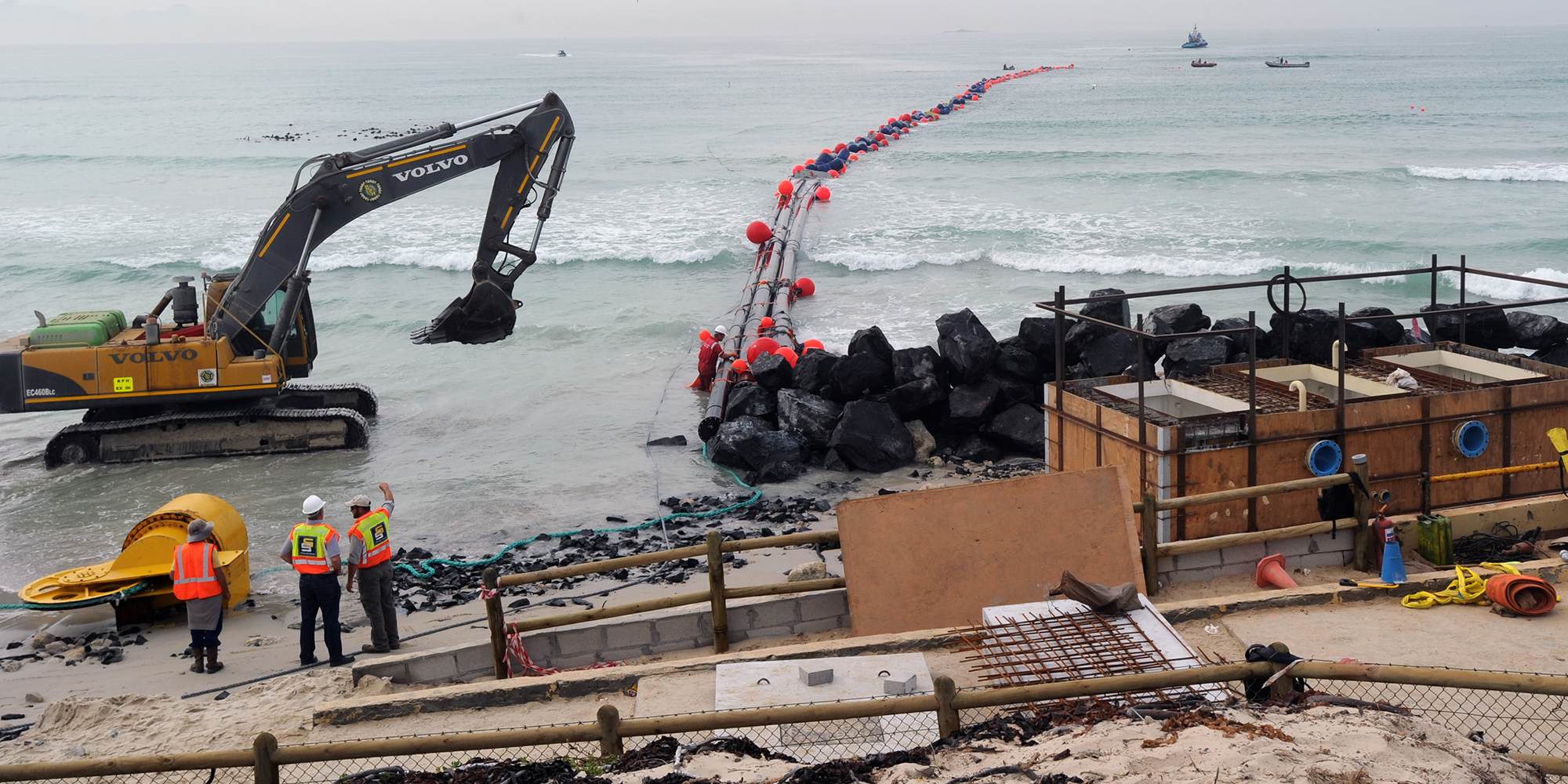A desalination plant in Port Alfred started in court with a tender dispute. Now it has ended in court with a payment dispute. And the residents of Port Alfred are still struggling with water.
The Ndlambe Municipality claims under oath in court papers that it has paid R111,000 a day for water trucks since the desalination plant was closed.
Quality Filtration Systems (QFS) won the tender to build and run a five-million-litre-a-day desalination plant in Port Alfred in 2020. The money was to come from a R20-million grant provided by the Eastern Cape government and an additional R80-million from the Department of Water Affairs.
The original tender was for a two-million-litre-a-day desalination plant on the banks of the Kowie River.
Two bids were shortlisted – one by QFS for R40.2-million and one by MEB Energy for R132-million. The tender was awarded to QFS on 11 February after a legal challenge in court.
MEB applied for an interdict to stop the awarding of the tender and, in papers before the court, alleged that there was corruption.
At the time, Herman Smit, the managing director of QFS, said the original QFS bid for about R40-million was for a two-million-litre-a-day desalination plant.
This initial bid was later changed to one for a five-million-litre plant, including a facility for cleaning wastewater using reverse osmosis.
Both Smit and the municipality said the information that municipal officials had solicited a bribe during the tender procedures was false.
Read more in Daily Maverick: “‘Water, water everywhere’… but what are the final costs of ocean desalination?”
The plant was commissioned on 23 June 2021. It reached the milestone of having pumped 100 million litres of quality potable water into the municipal reticulation system by August. Water quality results also showed that the plant had produced water that exceeded the standards set for drinking water in South Africa. Twelve people were employed there.
In February 2022, the Hawks raided the municipality’s offices and seized documents relating to this tender.
The water from the plant was to supply 35,000 residents of Port Alfred with 6.54 million litres daily.
No work or no payment?
In September, QFS stopped operations because the municipality had not paid the company. On 7 October 2022, the municipality went to the Makhanda High Court to obtain an urgent interdict to force QFS to start up its plant again. Its application was dismissed with costs.
In his ruling, Judge Murray Lowe said he was asked to decide if QFS stopped working because it wasn’t paid or if the municipality stopped paying because QFS didn’t work.
In this court case, Ndlambe Municipality said that, since the plant stopped working, it had to pay R111,000 daily for water trucks in a “stop-gap arrangement”.
Visit Daily Maverick's home page for more news, analysis and investigations
QFS argued before the court that it was entitled to suspend activities at the plant as the municipality was in breach of contract because it did not pay the company.
The municipality’s legal team argued that QFS failed to deliver the required output.
Municipal manager Rolly Dumezweni said in response to questions about the termination of QFS’s contract that the court ordered QFS to resume its operations at the plant in December but that the company did not return.
“This had negative impacts on the Ndlambe Municipality during the festive season,” said Dumezweni.
The municipality’s contract with QFS was terminated on 10 January, he added.
He said the municipality now had a 1.5-million-litre shortage in water supply.
“An assessment of the plant was carried out on 17 January 2023. There are some parts of the plant that must be repaired due to lack of maintenance and vandalism that occurred while the plant was under QFS. Currently, a process of handing over the plant is being followed so that the municipality takes ownership of the asset and its related software to be able to take over the operations,” Dumezweni said.
“The municipality has finalised its plans on operations of the plant, will carry on with repairs, and as soon as the repairs are done, the plant will be back in operation,” he added, but he gave no date for this.
He did not answer questions about the breakdown of the R111,000-a-day payment for water trucking.
Smit said QFS suspended work in September 2022 because of nonpayment.
“Ndlambe went to court in effect asking the court to step in and override the contract’s conditions. QFS won that case with a full cost order,” he said, adding that QFS once again suspended work in December because of nonpayment.
Ndlambe followed the same route on 19 December, asking the court to override the conditions of the contract.
“Seeing that it was a court holiday from the 15th of December 2022, QFS could not find representation for the following week’s court application and could not defend the case,” he said.
“The debate and legal arguments ended in an agreement to amicably terminate the agreement and go to arbitration to resolve the contractual disputes,” Smit added.
Smit said that, due to the pending arbitration, he could not discuss the merits of the case.
“It is a pity that the municipality [runs] to court to solve [its] contractual issues like nonpayment and thus [tries] to force a supplier to perform a service without payment,” he added.
Resident Anne Edwards, a founding member of the community organisation Panic, said that when the plant stopped working there was no notice to residents.
“People were asking where the water was. There was just no communication. We just wanted to know what was going on. When the plant worked, things still were not great, but at least 80% of the town had water,” she said. DM168
This story first appeared in our weekly Daily Maverick 168 newspaper, which is available countrywide for R25.






